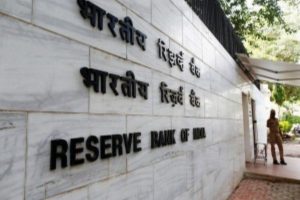Former US President Donald Trump’s rally in Pennsylvania on Saturday, held at the site of a near-fatal assassination attempt on July 13, was more than just a campaign event; it was a moment steeped in symbolism and political theatre. Coming one month before the November election, this rally underscores how deeply the former President’s base resonates with his message of defiance and survival, both in a literal sense and within the political landscape of the United States. The image of a candidate returning to a site where his life came under attack sends a potent message to his supporters.
It embodies Mr Trump’s persona as a fighter, someone who not only withstands but thrives under adversity. The dramatic retelling of how he was grazed by a bullet, his reference to the moment he was interrupted, and his rallying cry of “fight” taps into the narrative he’s cultivated for years ~ that of a man constantly under siege by both external and internal forces. It is a message that resonates strongly with his followers, who view him as a representative of their own struggles against what they perceive as a hostile system. Mr Trump’s ability to turn personal peril into political capital is not new, but the circumstances surrounding this rally raise deeper questions about the state of American democracy. The attack on a presidential candidate, followed by another attempt weeks later, points to a troubling escalation in political violence.
Advertisement
While Mr Trump’s campaign has embraced these moments to reinforce his image as a warrior for his movement, the broader implications are alarming. When political violence becomes normalised, it polarises the electorate, creating an environment where compromise and dialogue are increasingly impossible. The rally also highlighted the role of allies like Elon Musk, whose presence further energised the crowd. Mr Musk’s endorsement of Mr Trump underscores a growing alliance between populist political figures and tech moguls who have grown disillusioned with the establishment. Mr Musk’s declaration that the election is a “must-win situation” for Mr Trump reflects the high stakes felt by both Trump supporters and those who align with the former President’s anti-establishment rhetoric.
The partnerships between Mr Trump and figures like Mr Musk points to an evolving political landscape where the lines between corporate influence, social media power, and political movements are increasingly blurred. However, while the theatrics of Mr Trump’s return to Pennsylvania may galvanise his base, it also draws attention to the failures of the US Secret Service, which has faced criticism for lapses in protecting the former President. The resignation of the Secret Service director and the heightened security measures now in place are stark reminders of the dangers that political figures face in an increasingly volatile climate. Ultimately, Mr Trump’s rally in Pennsylvania was more than just a campaign stop; it was a performance designed to solidify his image as a leader who endures, who fights, and whose penchant for grandstanding will not go away.











